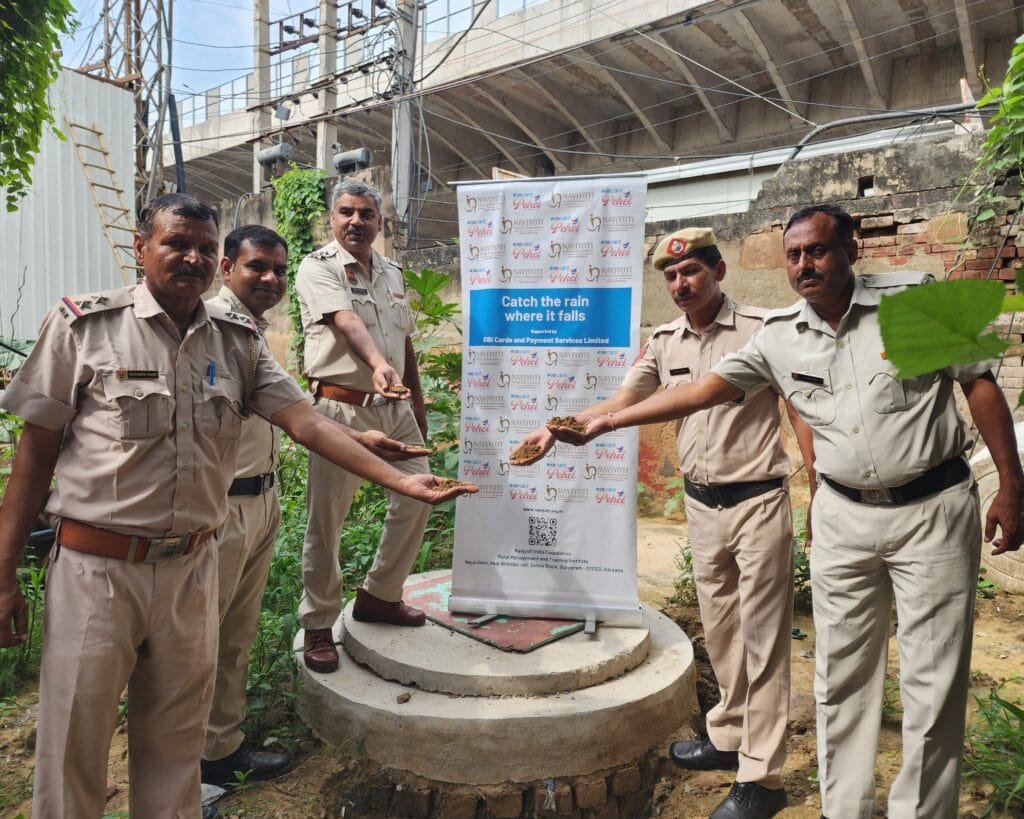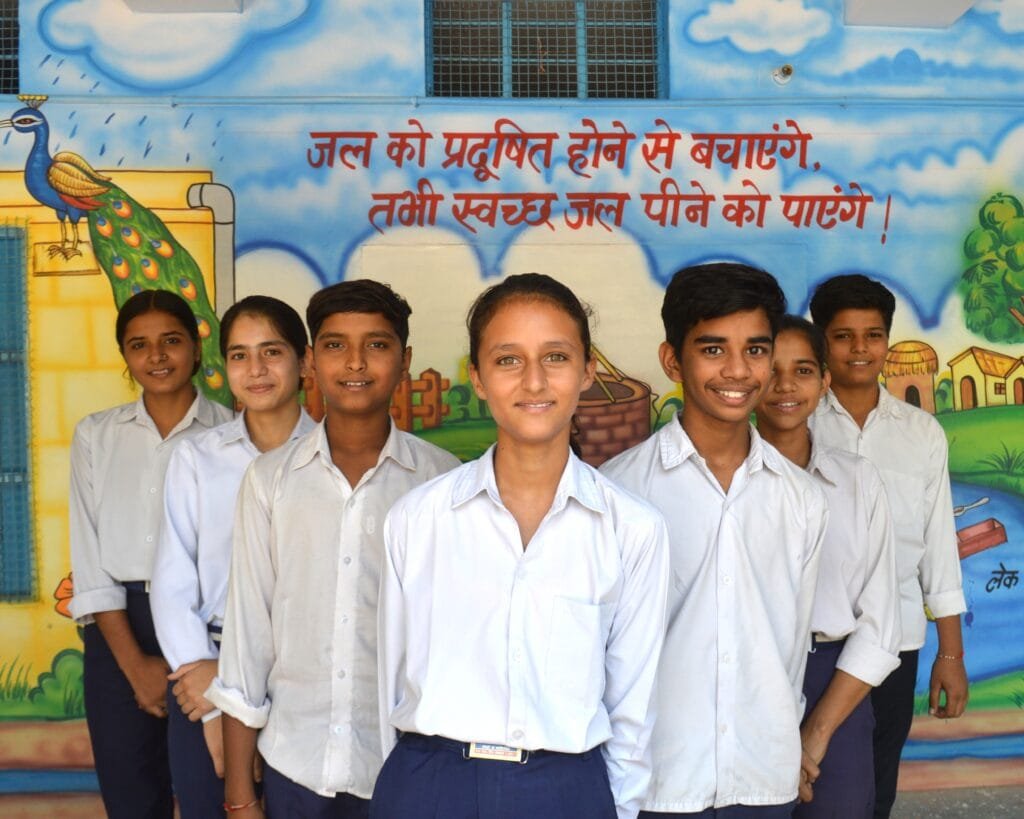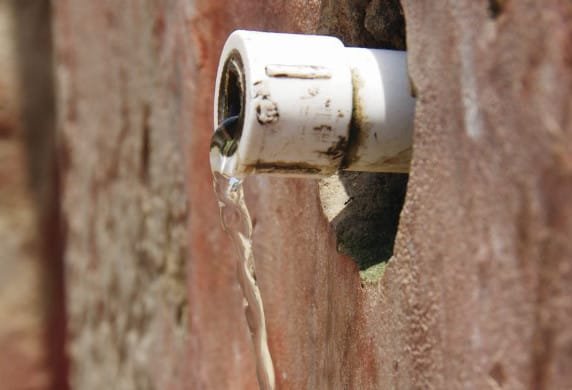Promoting sustainable lifestyles and green spaces
Navjyoti India Foundation is dedicated to environment and water conservation, fostering sustainable lifestyles through close collaboration with children, women’s groups, youth, Resident Welfare Associations (RWAs), government agencies, village Panchayats (Council of 5 members), and the community at large. Our environment initiatives encompass soil and water conservation, including the revival of ponds with nature-based solutions and rainwater harvesting to recharge groundwater. We also lead Water, Sanitation, and Hygiene (WASH) programs that enhance sanitation practices and promote safe hygiene in communities. In addition, we create and maintain green spaces to support long-term resource sustainability. Our programs are active in urban, peri-urban, and rural areas, reaching diverse communities for a healthier, more sustainable future.
The Need
In 2003, it was observed that women in rural areas of Gurugram district, Haryana, faced the burden of fetching water from far-off distances. Recognizing that women’s empowerment is deeply connected to access to essential resources, Navjyoti India Foundation identified water issues as a critical area for intervention. In 2005, water reached the doorsteps of all households because of the Accelerated Rural Water Supply Program. However, mismanagement of water by the communities led to a rapid decline in groundwater levels.
In response, we constructed water conservation structures in Abheypur village, which later expanded to nearby villages. The pressing need for awareness inspired a mass movement called Jal Kranti (Water Revolution), mobilizing village communities to actively engage in water conservation. The movement led to the formation of Pani Police (Water Police), where Panchayats and youth groups took ownership of water management and revived village ponds.
Today, this movement extends to urban and peri-urban areas, where we continue to work towards recharging the groundwater table. The Pani Police initiative has also expanded to police stations, with police officials now serving as stewards of water conservation. Moreover, the rising demand for sanitation and hygiene facilities in local schools has driven us to work on WASH initiatives, ensuring clean water, sanitation, and hygiene for healthier communities.
Alarming Facts
By 2030, India’s water demand is projected to be twice the available supply, implying severe water scarcity. (Niti Aayog, 2018)
Haryana has the lowest forest cover as per India State of Forest Report, 2017
The ratio of Annual Ground Water Draft and Net Annual Ground Water Availability i.e. ground water development in India is 63% with extraction being more than 100% in the state of Delhi, Haryana, Punjab and Rajasthan (Central Ground Water Board, 2017)

Our Solution

Saving Water
As part of the water conservation and management initiatives, we construct check dams, gabion structures, gully plugs, recharge wells, recharge filters, rainwater harvesting structures, and revive ponds. Additionally, water literacy programs are conducted in the schools with children, youth, women, village Panchayats, Biodiversity Management Committees, Corporates, RWAs, and communities at large. Regular awareness programs and campaigns are organized on the critical issues of water crisis.

Enhancing Water, Sanitation, and Hygiene (WaSH)
As part of our WASH initiatives, we construct essential WASH facilities in schools, including toilets, to promote a healthier learning environment. Our hygiene sensitization sessions empower students with knowledge on safe hygiene practices, and we work closely with the community to build the capacity of village water and sanitation committees. This helps ensure sustainable ownership and maintenance of WASH projects, promoting a cleaner and healthier future for all.


Our Model Approach
Collaboration & networking
We undertake eco-restoration in mutually supportive ways with all the stakeholders such as district administration, academicians, other NGOs, university partners, private enterprises and communities.
Integrated & multi-disciplinary approach
We focus on integrated, cross institutional and multi-disciplinary approach to improve the behavioral change amongst the stakeholders to manage water. It combines engineering, social and environmental aspects reaching out to communities in peri-urban, urban and rural communities.
Inclusivity & community ownership
We strengthen institutional frameworks which is inclusive, transparent and effective . The local communities are sensitised, empowered and engaged on environment conservation in order to sustain the program.
We are part of the Sustainable Development Goals
According to United Nations, poverty is more than lack of income and resources to ensure a sustainable livelihood. Its manifestations also include limited access to education and basic services, social discrimination and exclusion as well as lack of participation in decision-making. The program seeks to address the role of women in issues of water management, sanitation and hygiene.

Our Overall Impact
33,12,91,298
litres of annual groundwater recharge potential created and sustained
27,43,424
total individuals benefited from water, sanitation and hygiene programs
70,000
square metres of barren land converted into green space
5,370
total number of community members sensitized on water, sanitation and hygiene
188
water conservation structures constructed
1,29,631
square meters of land saved from flooding
Stories of Change
Geeta and Kanta, although less educated, are determined to carry on their drive and are unknowingly working towards the achievement of one the UN sustainable development goal of Clean water and Sanitation under 2030 agenda. Recently, they were awarded by World Women Summit Foundation (WWSF), Geneva for their innovative and creative work in rural areas. They aspire to become ambassadors of Water, Sanitation and Hygiene (WASH) promoting safe drinking water, health and hygiene in the rural communities.
